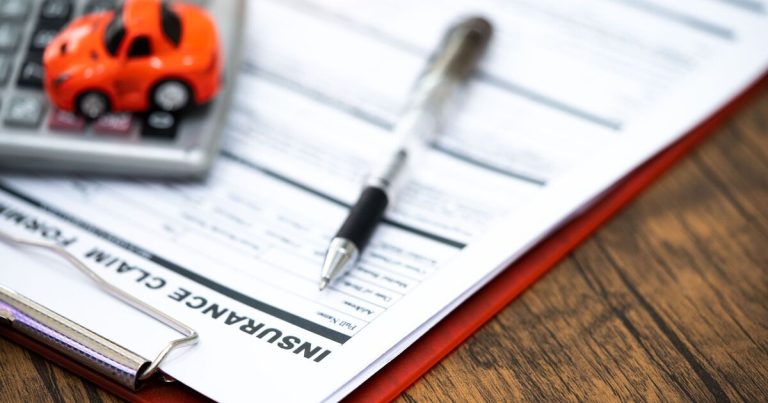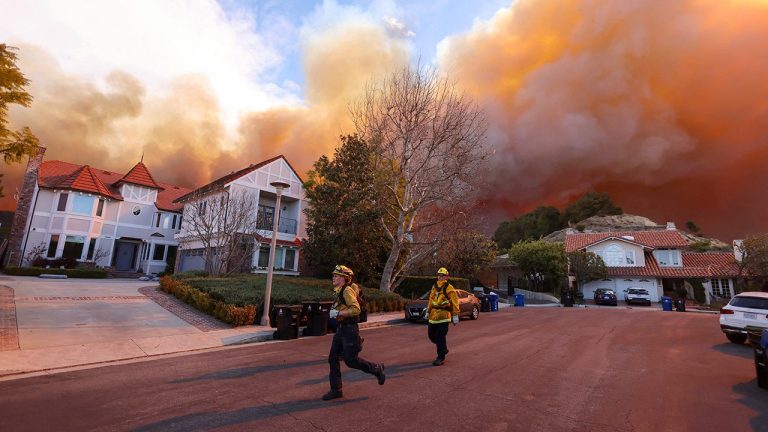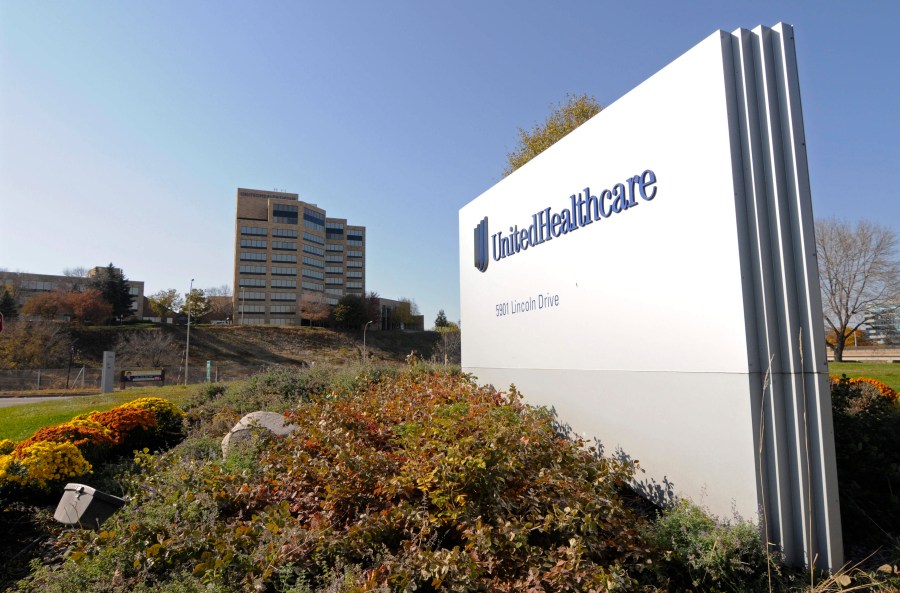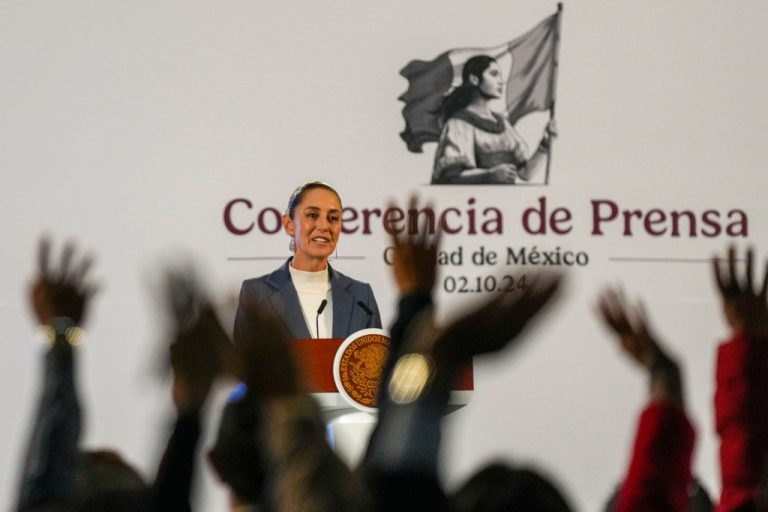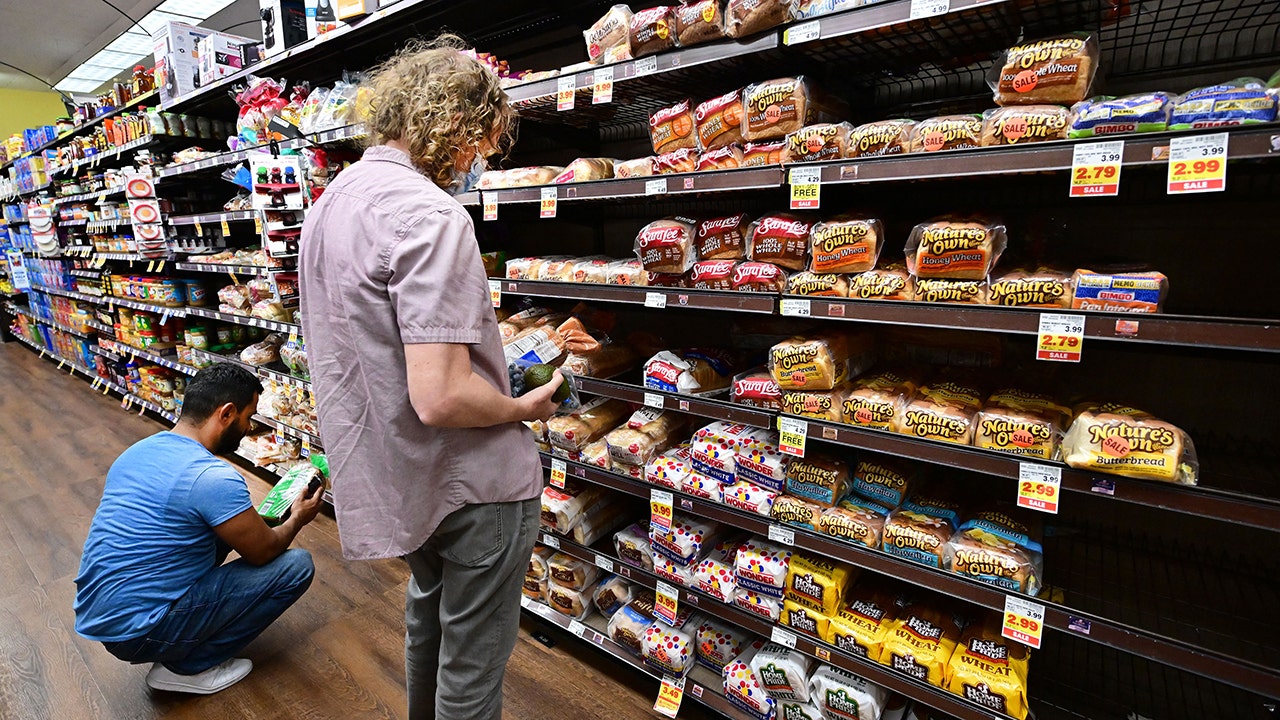
Former Kansas City Federal Reserve Bank President Thomas Hoenig reacts to Jerome Powell saying the Fed is not ready to start cutting rates on ‘Cavuto: Coast to Coast.’
Americans are bracing for high inflation to stick around over the next few years, according to a key Federal Reserve Bank of New York survey published Monday.
The median expectation is that the inflation rate will be up 3% one year from now, according to the New York Federal Reserve’s Survey of Consumer Expectations, unchanged from the previous months.
Consumers also anticipate that inflation will remain abnormally high in the coming years, projecting that it will hover around 2.7% three years from now – up from January’s 2.4% – and rise even further to 2.9% five years from now, according to the survey.
That remains above the Fed’s 2% target, indicating that sticky inflation could be here to stay. By comparison, central bank policymakers projected in their latest economic forecasts that inflation will fall to 2.1% by 2025 and eventually settle around 2% in 2026.
POWELL SAYS FED WON’T RUSH TO CUT INTEREST RATES UNTIL INFLATION IS CONQUERED

A woman shops for groceries at a supermarket in Monterey Park, California on October 19, 2022. ((Photo by FREDERIC J. BROWN/AFP via Getty Images) / Getty Images)
Americans expect the cost of gasoline to rise slightly over the next year. However, they predicted the price of other necessities like medical care and rent to fall in the year ahead. Consumers anticipate that the cost of groceries will remain unchanged at 4.9%.
The survey, based on a rotating panel of 1,300 households, plays a critical role in determining how Fed policymakers respond to the inflation crisis.
FED’S FIGHT AGAINST INFLATION IS WEIGHING ON MIDDLE-CLASS AMERICANS
That is because actual inflation depends, at least in part, on what consumers think it will be. It is sort of a self-fulfilling prophecy – if everyone expects prices to rise by 3% in the year, that signals to businesses that they can increase prices by at least 3%. Workers, in turn, will want a 3% pay raise to offset the rising costs.
Fed Chair Jerome Powell has repeatedly stressed that policymakers are committed to wrangling inflation back to the Fed’s 2% target goal before they start to reduce interest rates.
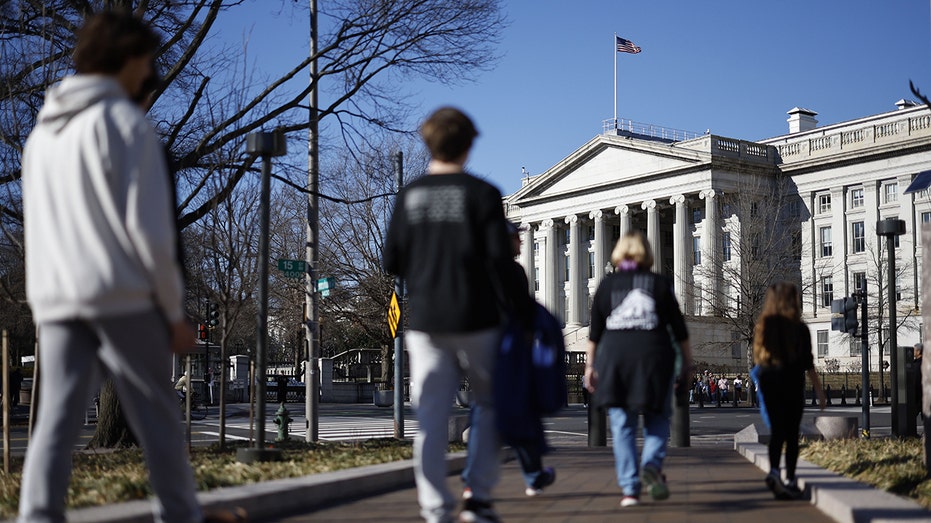
Pedestrians near the Treasury building in Washington, D.C. on Dec. 30, 2022. (Photographer: Ting Shen/Bloomberg via Getty Images / Getty Images)
“We’re waiting to become more confident that inflation is moving sustainably at 2%,” Powell said while testifying on Capitol Hill last week. “When we do get that confidence, and we’re not far from it, it’ll be appropriate to begin to dial back the level of restriction.”
The New York Fed survey also pointed to growing concerns about the labor market and household finances.
GET FOX BUSINESS ON THE GO BY CLICKING HERE
The mean perceived probability of losing one’s job in the next 12 months jumped by 2.7 percentage points to 14.5%. But mean unemployment expectations – or the probability that U.S. unemployment will be higher one year from now – fell by 1.1 percentage points to 36.1% in February, the lowest reading in two years.
At the same time, households were more downbeat about their ability to access credit. Perceptions of credit access compared with the same time last year deteriorated, with the share of households reporting it is harder to obtain credit rising.
“Perceptions and expectations about credit access turned less optimistic,” the report said.


